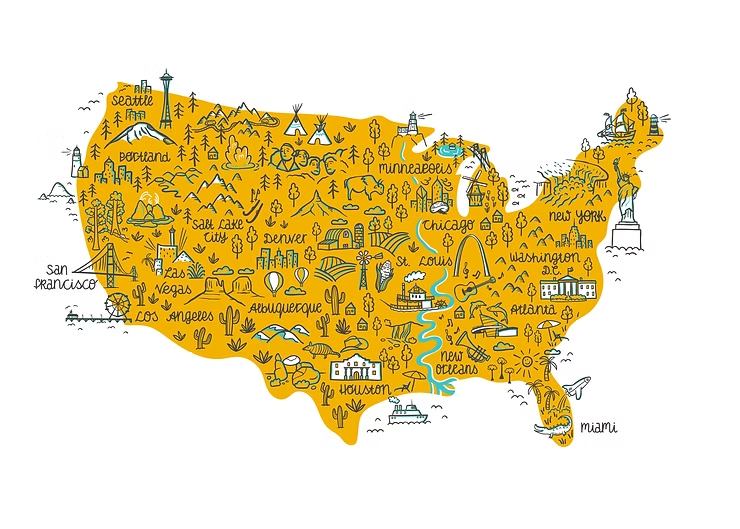What is a Home State?

In this article, we walk you through how a home state is determined within the insurance industry, and the nuances you need to be aware of.
The Role of the NRRA in simplifying surplus lines regulation
Before the Nonadmitted and Reinsurance Reform Act (NRRA) was enacted, surplus lines policies that provided coverage in multiple states could be a real pain! For example, imagine a policy that provided coverage to locations in 17 states. That same policy would have required a filing in all 17 states - with each state having its own filing requirements, due dates, and tax rates! But, thanks to the NRRA, which was passed in 2010 and went into effect the following summer, that same policy now only requires a single filing in the policy’s “home state.”
What is a Home State?
The NRRA defines Home State as “the state in which an insured maintains its principal place of business or, in the case of an individual, the individual’s principal residence.” In the case of a single insured who has purchased a policy that provides at least a portion of the coverage in the state where that insured’s principal place of business or residence is located, that state would become the home or filing state of the policy. For example, an agency headquartered in California purchases insurance to provide coverage at all its locations in California, Oregon, and Washington. Because the policy provides coverage in California, where the business is headquartered, the policy’s home state would be California - and the surplus lines filings would be made in that state.
But what happens when there is no coverage afforded by the surplus lines policy in the state where the insured’s principal business location or residence is located? The law provides further guidance: “if 100 percent of the insured risk is located out of the state [where the insured’s principal place of business or residence is located], the state to which the greatest percentage of the insured’s taxable premium for that insurance contract is allocated” becomes the home state.
Example: an individual whose principal residence is in New York purchases surplus lines coverage for a second home in Florida. Even though the insured’s principal residence is in New York, that would not be the home state of this policy. Instead, Florida would be the filing state since the majority of the premium (in this example, all of it) is allocated to that particular state.
But how is the home state determined for a policy that has multiple named insureds? The NRRA accounts for this scenario as well. For a policy with multiple named insureds from an affiliated group, the insured “member of the affiliated group that has the largest percentage attributed to it under such insurance contract” would determine the policy’s home state.
Example: three affiliated companies purchase a single surplus lines policy for a premium of $1000. The policy’s premium is allocated as such:
Company 1: headquartered in OH - $200
Company 2: headquartered in MI - $500
Company 3: headquartered in WI - $300
The policy provides coverage in each of the states where companies 1,2 and 3 are located. Per the NRRA, company 2 would determine the policy’s home state since it has the largest amount of coverage allocated to it (regardless of whether company 2 is the first-named insured on the policy). Since company 2’s principal place of business is in MI, and the policy provides coverage in MI, the filing state for this would be MI.
The NRRA has brought about many benefits to regulating the non-admitted market - the greatest of which may be the efficiency and clarity that comes from only having one state determine the regulatory requirements (including filing due dates and tax rates) for a multi-state filing.
Home state determination works differently with RPGs
The NRA does not specifically address nonaffiliated groups. Therefore, many states have taken the position that premium taxes should be allocated to each state where an RPG member resides (New York, for example). The home state, therefore, is where each RPG member resides, rather than the home state of the "master policy." If a broker remits all taxes to the master policy home state, other states may ask for their portion, and the broker may be forced to ask for a refund and attempt to collect additional taxes from RPG members.
InsCipher is an insurtech company providing software and services that are revolutionizing inefficient insurance processes. Save your agency time and money by automating surplus lines compliance, filing, and reporting. Want to learn more? Request a free demo today!
Scale your business without worrying about costly fines or penalties.

